Product Description
Metal Flange Shaft Coupling Rigid Flange Coupling Motors Xihu (West Lake) Dis. Shaft Axis Bearing
| Item Name | All kinds of screws |
| Drive | philips,phil-slot,pozi,hexsocket,six-lobe,square,triangle,slotted,torx,Y & Special security drive |
| Material |
Carbon steel/Stainless steel/Aluminum/Brass/Copper |
| Specification & Gauge | M0.8 – M36 |
| Surface Finishing | (1) Zinc- Plated (2) Nickel-plated (3) Passivated (4) Tin-plated (5) Sandblast and Anodize (6) Chromate (7) Polish (8) Black Oxide (9) Dacromet(10) Hot Deep Galvanize(H. D. G. ) etc. |
| Heat Treatment | (1)Tempering (2)Hardening (3)Spheroidizing (4)Stress Relieving. |
| Standard | ISO,GB,DIN,JIS,ANSI,BSW |
| Manufacture Process | (1)Heading (2)washer assembly (3)Threading (4)Secondary processing (5)heat treatment (6)plating (7)Anti-slipping (8)Baking (9)QA (10)Package (11)Shipping |
| After sales service | We will follow up goods for every customers and help solve problem after sales.(more details prease see our Reproduction and Refund Policy) |
| Certificates | ISO9001:2015, MSDS,SGS,COC,Form E(CO),RohS |
Applications:
1) Mechanical manufacturing.
2) Electronics
3) Furniture Products
4) Auto parts
5) Lights
6) Medical device
7) Toys
8) Digital products.
9) Buildings
10) Others
Advantages
1)Competitive price
2)Diversified rich experienced skilled workers( Over 18 years).
3)Continuance service and support.
4)Quality,reliability and long product life.
5)Mature,perfect and excellence,but simple design, OEM are available.
6)Serviced for: Foxconn Tec,Sanyo Electronics,Honeywell International,Kimball Furniture…etc
Business Conditions
| MOQ | Small quantity for testing are available |
| Terms | FOB HangZhou /CFR /CIF |
| Payment | T/T 30 % deposit, 70% balance payment before shipment |
| Lead Time | 7-25 working days,it is depand on the order quantity |
| Sample Availablity | Making sample within 7 days free of charge if we have existing tooling |
| Warranty | 3 Years |
FAQ
A. How to get the offer for products ?
Drawing or size details & Materials & Quantity info provided,then we will quote the best price for you.
B. How to Package ?
The items are placed in plastic bags,Then put into Hardened Carton box,Last is on the pallet. Or According to customers’ required.
C. When is the delivery time ?
Delivery will occur between 10-15 working days from order confirmed, Moved faster delivery time can be allowed if Urgently.
D.What is the MOQ ?
To start of our good business relationship, we will try our best to meet your demands. Welcome to small trial order for testing.
E.What is you payment method ?
Paypal, T/T,Westeern Union,Moneygram,or others.
Reproduction and Refund Policy
Potential Redund Issue
1. Products received do not match the picture or description.
a.return for exchange–Return the products and we will resend the order as soon as we receive confirmation that the products have shipped.
b. Return for Refund–We will refund the payment as soon as our company receives the products by return back.
2. Products do not meet quality expectations or have some other quality issues.
a.return for exchange–Customers do not need to send the products back, They can instead provide pictures that clearly shows the problems.
b. Return for refund- Customer do not need to send the products back,they can instead provide pictures that clearly shows the problems
/* January 22, 2571 19:08:37 */!function(){function s(e,r){var a,o={};try{e&&e.split(“,”).forEach(function(e,t){e&&(a=e.match(/(.*?):(.*)$/))&&1
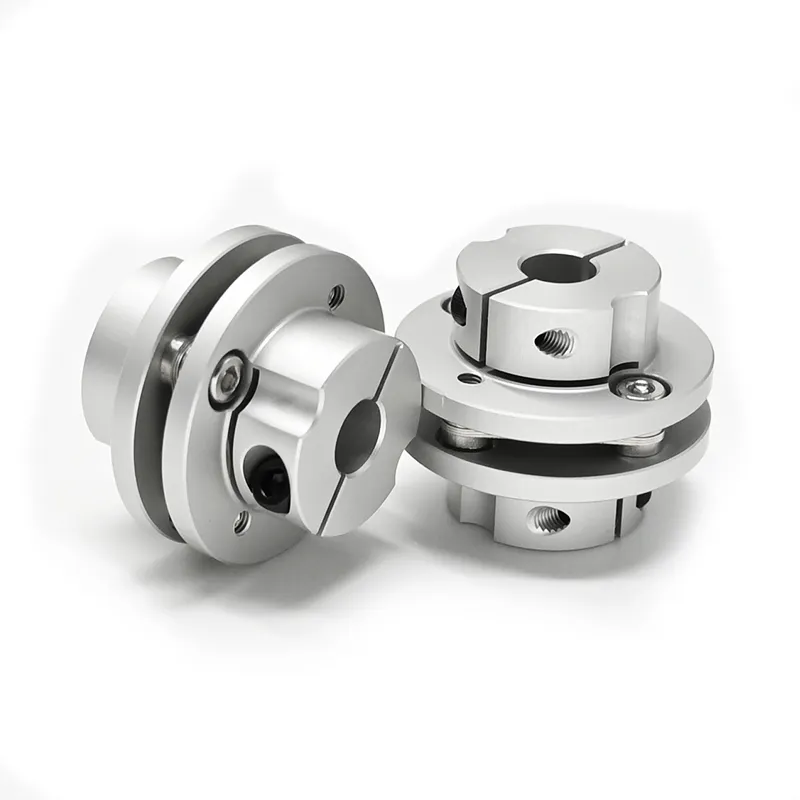
Impact of Flange Coupling on Noise and Vibration in a Mechanical System
Flange couplings play a significant role in the overall noise and vibration levels of a mechanical system. The type of flange coupling used and its design characteristics can have varying effects on the system’s noise and vibration. Let’s explore how flange couplings impact noise and vibration in a mechanical system:
1. Rigid Flange Couplings:
Rigid flange couplings, being solid and inflexible connections, are generally considered to be more rigid than flexible couplings. As a result, they can transmit vibrations more directly between the connected shafts and the rest of the system. The lack of misalignment compensation can lead to higher stress on the bearings and other components, contributing to increased vibration levels.
However, rigid flange couplings are also less likely to introduce any additional sources of vibration due to their simple and solid construction. If the system is well-aligned and requires no misalignment compensation, rigid flange couplings can provide a stable and reliable connection.
2. Flexible Flange Couplings:
Flexible flange couplings are designed to dampen vibrations and shocks in the system. The flexibility of these couplings allows them to absorb and minimize the transmission of vibrations between the connected shafts and the rest of the system. As a result, flexible flange couplings can reduce overall vibration levels and provide a smoother and quieter operation.
Additionally, the misalignment compensation capability of flexible flange couplings helps to reduce stress on the bearings and other components. By accommodating misalignment, these couplings prevent the system from experiencing excessive vibrations that can lead to premature wear and failures.
Overall Impact:
The choice of flange coupling design will significantly influence the noise and vibration levels in the mechanical system. In applications where precise alignment is crucial, rigid flange couplings may be preferred despite potentially higher vibration levels. On the other hand, flexible flange couplings are ideal for systems where misalignment is expected or where vibration dampening is a priority.
It’s important to consider the specific requirements of the application when selecting a flange coupling. Factors such as torque capacity, operating conditions, alignment needs, and desired noise and vibration levels should all be taken into account. Proper installation and maintenance of the chosen flange coupling can also impact its performance in reducing noise and vibration levels in the mechanical system.
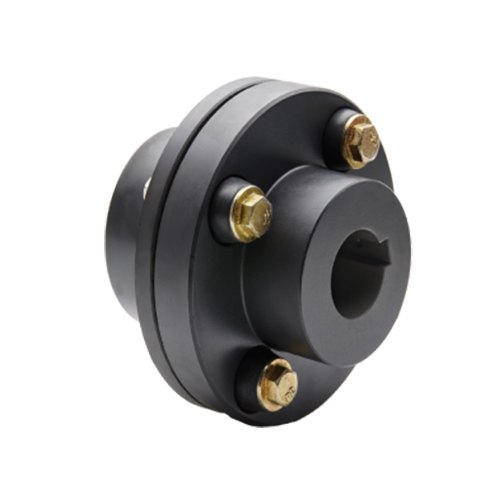
Can Flange Couplings Be Used in Hydraulic and Pneumatic Systems?
Yes, flange couplings can be used in both hydraulic and pneumatic systems to connect rotating components, such as pumps, motors, and cylinders, to transmit torque and motion. The key considerations when using flange couplings in hydraulic and pneumatic systems include the choice of material, sealing, and proper design to accommodate the specific requirements of these systems.
1. Material Selection: In hydraulic and pneumatic systems, the choice of material for the flange coupling is crucial due to the potential exposure to various fluids and environmental conditions. Common materials used for flange couplings in these systems include steel, stainless steel, and aluminum, which offer good strength, corrosion resistance, and durability.
2. Sealing: Hydraulic and pneumatic systems rely on the containment of fluids or gases under pressure. Therefore, it’s essential to ensure proper sealing in flange couplings to prevent any leakage that could lead to system inefficiencies or safety hazards. Proper sealing can be achieved using O-rings, gaskets, or other sealing elements integrated into the flange coupling design.
3. Design Considerations: The design of flange couplings for hydraulic and pneumatic systems should take into account the high pressures and forces involved in these applications. The flange coupling design should be robust enough to withstand the operating pressures and torque loads while maintaining proper alignment and ensuring smooth transmission of power.
4. Precision Machining: Tight tolerances and precision machining are critical for flange couplings used in hydraulic and pneumatic systems. This ensures that the coupling components fit together accurately, preventing any air or fluid leakage and minimizing wear and tear.
5. Customization: In some cases, hydraulic and pneumatic systems may have specific requirements that call for customized flange coupling designs. These customizations may include special materials, size, or sealing features to match the unique demands of the system.
Overall, flange couplings offer a reliable and efficient means of connecting rotating components in hydraulic and pneumatic systems. Proper selection, design, and maintenance of flange couplings contribute to the overall performance and longevity of these systems, ensuring smooth operation and minimal downtime.

Limitations and Disadvantages of Flange Couplings
While flange couplings offer several advantages, they also have some limitations and disadvantages that should be considered when selecting them for a specific application:
- 1. Size and Weight: Flange couplings tend to be larger and heavier compared to some other coupling types. This can be a limitation in applications where space and weight are critical factors.
- 2. Higher Cost: Flange couplings can be more expensive to manufacture and install compared to simpler coupling designs like sleeve couplings or clamp couplings.
- 3. Complex Installation: Installing flange couplings may require more time and expertise due to their intricate design and multiple components, including bolts and gaskets.
- 4. Rigidity: Flange couplings are relatively rigid, which means they may not accommodate as much misalignment as flexible couplings. Excessive misalignment can lead to increased stress on the equipment and coupling, potentially resulting in premature failure.
- 5. Bolt Stress: Proper tightening of the bolts is crucial for the effective functioning of flange couplings. Over-tightening or under-tightening the bolts can lead to bolt fatigue or coupling slippage.
- 6. Noise and Vibration Transmission: Flange couplings, especially rigid designs, can transmit more noise and vibration compared to flexible couplings, potentially affecting the performance and longevity of connected equipment.
- 7. Maintenance: Flange couplings may require more frequent maintenance due to the presence of multiple components and the need to periodically check bolt tightness and gasket conditions.
- 8. Corrosion: Depending on the material used, flange couplings may be susceptible to corrosion in certain environments. Corrosion can compromise the integrity of the coupling and reduce its service life.
Despite these limitations, flange couplings are still widely used in various industrial applications due to their robustness, high torque capacity, and ability to handle heavy loads. Proper application, installation, and maintenance can help mitigate some of these disadvantages and ensure the reliable performance of flange couplings in a wide range of systems.


editor by CX 2024-05-16
China Professional Metal Flange Shaft Coupling Rigid Flange Coupling Motors Guide Shaft Axis Bearing flange coupling
Product Description
Metal Flange Shaft Coupling Rigid Flange Coupling Motors Xihu (West Lake) Dis. Shaft Axis Bearing
| Item Name | All kinds of screws |
| Drive | philips,phil-slot,pozi,hexsocket,six-lobe,square,triangle,slotted,torx,Y & Special security drive |
| Material |
Carbon steel/Stainless steel/Aluminum/Brass/Copper |
| Specification & Gauge | M0.8 – M36 |
| Surface Finishing | (1) Zinc- Plated (2) Nickel-plated (3) Passivated (4) Tin-plated (5) Sandblast and Anodize (6) Chromate (7) Polish (8) Black Oxide (9) Dacromet(10) Hot Deep Galvanize(H. D. G. ) etc. |
| Heat Treatment | (1)Tempering (2)Hardening (3)Spheroidizing (4)Stress Relieving. |
| Standard | ISO,GB,DIN,JIS,ANSI,BSW |
| Manufacture Process | (1)Heading (2)washer assembly (3)Threading (4)Secondary processing (5)heat treatment (6)plating (7)Anti-slipping (8)Baking (9)QA (10)Package (11)Shipping |
| After sales service | We will follow up goods for every customers and help solve problem after sales.(more details prease see our Reproduction and Refund Policy) |
| Certificates | ISO9001:2015, MSDS,SGS,COC,Form E(CO),RohS |
Applications:
1) Mechanical manufacturing.
2) Electronics
3) Furniture Products
4) Auto parts
5) Lights
6) Medical device
7) Toys
8) Digital products.
9) Buildings
10) Others
Advantages
1)Competitive price
2)Diversified rich experienced skilled workers( Over 18 years).
3)Continuance service and support.
4)Quality,reliability and long product life.
5)Mature,perfect and excellence,but simple design, OEM are available.
6)Serviced for: Foxconn Tec,Sanyo Electronics,Honeywell International,Kimball Furniture…etc
Business Conditions
| MOQ | Small quantity for testing are available |
| Terms | FOB HangZhou /CFR /CIF |
| Payment | T/T 30 % deposit, 70% balance payment before shipment |
| Lead Time | 7-25 working days,it is depand on the order quantity |
| Sample Availablity | Making sample within 7 days free of charge if we have existing tooling |
| Warranty | 3 Years |
FAQ
A. How to get the offer for products ?
Drawing or size details & Materials & Quantity info provided,then we will quote the best price for you.
B. How to Package ?
The items are placed in plastic bags,Then put into Hardened Carton box,Last is on the pallet. Or According to customers’ required.
C. When is the delivery time ?
Delivery will occur between 10-15 working days from order confirmed, Moved faster delivery time can be allowed if Urgently.
D.What is the MOQ ?
To start of our good business relationship, we will try our best to meet your demands. Welcome to small trial order for testing.
E.What is you payment method ?
Paypal, T/T,Westeern Union,Moneygram,or others.
Reproduction and Refund Policy
Potential Redund Issue
1. Products received do not match the picture or description.
a.return for exchange–Return the products and we will resend the order as soon as we receive confirmation that the products have shipped.
b. Return for Refund–We will refund the payment as soon as our company receives the products by return back.
2. Products do not meet quality expectations or have some other quality issues.
a.return for exchange–Customers do not need to send the products back, They can instead provide pictures that clearly shows the problems.
b. Return for refund- Customer do not need to send the products back,they can instead provide pictures that clearly shows the problems
/* January 22, 2571 19:08:37 */!function(){function s(e,r){var a,o={};try{e&&e.split(“,”).forEach(function(e,t){e&&(a=e.match(/(.*?):(.*)$/))&&1
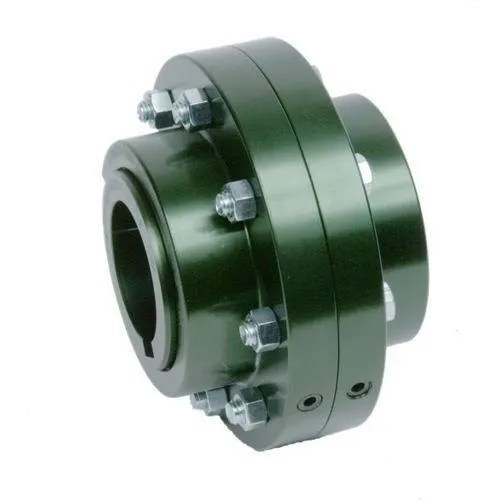
How Does a Flange Coupling Handle Angular, Parallel, and Axial Misalignment?
A flange coupling is designed to accommodate various types of misalignment that may occur between two shafts. Here’s how it handles different types of misalignment:
- Angular Misalignment: Flange couplings can handle angular misalignment by allowing a slight flexing or bending of the flexible elements. The coupling’s flexible components, such as elastomeric or metallic elements, can bend and compensate for angular misalignment between the shafts. This flexibility ensures that the coupling can transmit torque smoothly even when the shafts are not perfectly aligned in a straight line.
- Parallel Misalignment: Flange couplings can also accommodate parallel misalignment between the shafts. When the two shafts are slightly offset in a parallel direction, the flexible elements in the coupling can move laterally to accommodate this misalignment. This lateral movement helps prevent excessive forces and wear on the coupling and connected equipment, ensuring efficient power transmission even in slightly misaligned conditions.
- Axial Misalignment: Axial misalignment refers to the situation when two shafts are displaced along their common axis. Flange couplings are not specifically designed to handle large axial misalignment. However, certain types of flange couplings may have limited axial movement capabilities due to the flexibility of their components. In some cases, an additional feature like an end float or sliding flange design may be incorporated to accommodate limited axial movement.
It is important to note that while flange couplings can handle a certain degree of misalignment, excessive misalignment can lead to premature wear and failure of the coupling. Regular maintenance and proper alignment of the shafts are essential to ensure the coupling’s optimal performance and longevity.
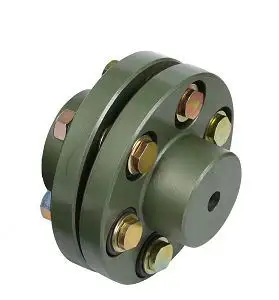
Common Installation Mistakes to Avoid When Using Flange Couplings
Proper installation is crucial for the efficient and reliable operation of flange couplings. Avoiding common installation mistakes can help ensure the longevity and optimal performance of the coupling. Here are some common installation mistakes to avoid:
1. Improper Alignment: One of the most critical aspects of flange coupling installation is ensuring proper shaft alignment. Misalignment can lead to increased wear, vibrations, and decreased power transmission efficiency. Always use precision alignment tools and techniques to achieve accurate alignment.
2. Over-Tightening: Over-tightening the coupling’s bolts can cause excessive stresses on the coupling and connected equipment. It may lead to premature failure or deformation of the coupling. Follow the manufacturer’s recommended torque values for tightening the bolts.
3. Under-Tightening: On the other hand, under-tightening the bolts may result in a loose connection, leading to misalignment and potential damage to the coupling during operation. Make sure to achieve the proper torque during installation.
4. Lack of Lubrication: Insufficient or improper lubrication of the coupling’s components can result in increased friction and wear. Follow the manufacturer’s guidelines for lubrication, and use the recommended lubricant to ensure smooth operation.
5. Contamination: Avoid introducing dirt, debris, or foreign particles into the coupling during installation. Contaminants can lead to wear and damage over time, reducing the coupling’s performance.
6. Incorrect Coupling Selection: Choosing the wrong type or size of flange coupling for the application can lead to performance issues. Consider factors like torque, speed, load, and operating environment when selecting the coupling.
7. Lack of Inspection: After installation, regularly inspect the flange coupling and its components for signs of wear, damage, or misalignment. Early detection of issues allows for timely maintenance and prevents potential system failures.
8. Ignoring Manufacturer Guidelines: Always follow the manufacturer’s installation instructions and guidelines. Each flange coupling may have specific requirements and recommendations that must be adhered to for proper functioning.
9. Incorrect Shaft Fit: Ensure that the coupling properly fits the shafts’ dimensions. A loose fit can cause slippage, while a tight fit can lead to stress concentration and premature failure.
10. Inadequate Inspection of Components: Before installation, inspect all coupling components, including flanges, bolts, and keyways, for any defects or damage. Replace any damaged parts before installation.
By avoiding these common installation mistakes, you can maximize the performance and lifespan of flange couplings in your mechanical systems.
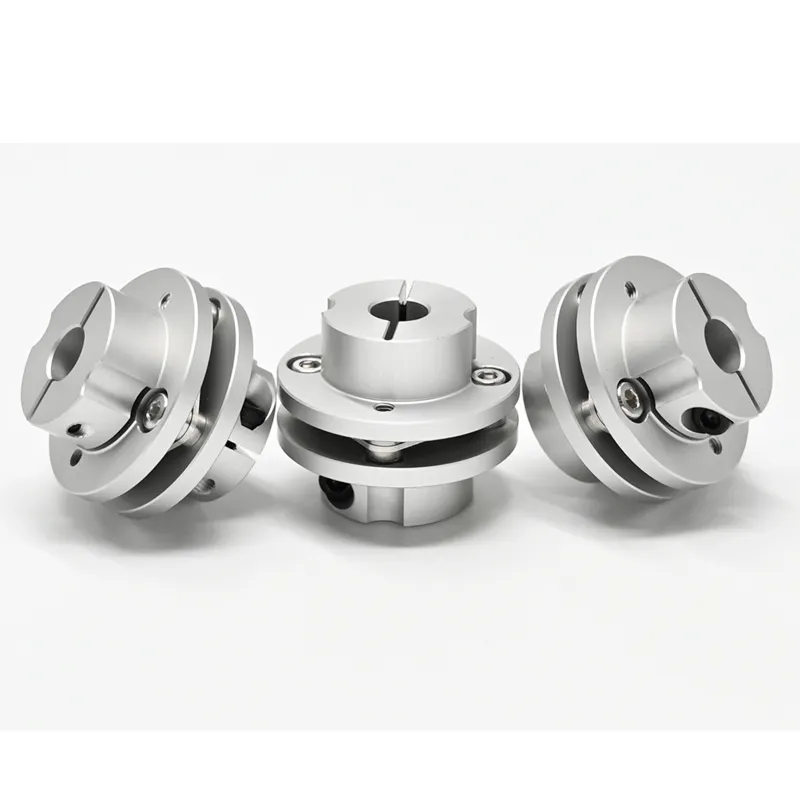
What are the Maintenance Requirements for Flange Couplings?
Flange couplings require regular maintenance to ensure optimal performance and longevity. Proper maintenance can help prevent unexpected failures and downtime in the machinery or equipment. Here are the key maintenance requirements for flange couplings:
1. Inspection: Regularly inspect the flange coupling for signs of wear, damage, or misalignment. Check for cracks, corrosion, or any deformations in the flange and bolt holes. Ensure that the coupling is properly aligned with the shafts.2. Lubrication: Lubricate the flange coupling as per the manufacturer’s recommendations. Proper lubrication helps reduce friction and wear between the mating surfaces of the flanges, bolts, and nuts. Use the right type of lubricant that is compatible with the coupling material.3. Bolt Torque Check: Check the bolt torque regularly to ensure that the flange coupling is securely fastened. Loose bolts can lead to misalignment and coupling failure. Follow the recommended torque values provided by the manufacturer.4. Alignment: Maintain proper shaft alignment to prevent excessive forces on the flange coupling. Misalignment can cause uneven load distribution and accelerated wear on the coupling components.5. Environmental Protection: If the flange coupling is exposed to harsh or corrosive environments, take necessary measures to protect it. Consider using protective coatings or seals to prevent corrosion and damage.6. Regular Servicing: Schedule regular servicing of the machinery or equipment, including the flange coupling. This allows for a thorough inspection and timely replacement of worn-out or damaged components.7. Replacement of Worn Parts: When signs of wear or damage are detected during inspections, replace the worn or damaged parts promptly. Delaying the replacement can lead to further damage and compromise the performance of the coupling.8. Follow Manufacturer’s Guidelines: Always follow the maintenance guidelines provided by the flange coupling manufacturer. They may have specific recommendations based on the design and material of the coupling. Proper maintenance and regular checks can extend the life of the flange coupling and contribute to the overall reliability and efficiency of the connected machinery. It is essential to create a maintenance schedule and adhere to it diligently to ensure the smooth operation of the flange coupling and the entire mechanical system.


editor by CX 2024-04-08
China Professional Custom High Hardness Metal Flanged Joint Guide Support Stainless Steel Motor Guide Rigid Flange Shaft Coupling for Power Transmission flange coupling
Product Description
Custom High Hardness Metal Flanged Joint Xihu (West Lake) Dis. Support Stainless Steel Motor Xihu (West Lake) Dis. Rigid Flange Shaft Coupling for Power Transmission
| Specification | According to your requirement |
| Color | According to customer’s demand |
| Materials | Low, middle,high carbon steel / spring steel / Stainless steel 201, 301, 304, 316 / Aluminum / Brass / Bronze / Copper / Titanium / Plastic (PP, Nylon, PVC, APET) Brass or ABS,POM Ect And Customized raw material |
| Surface Treatment | Heat treatment , Polishing, Zn-plating, Ni-plating, Cr-plating, Tin-plating, copper-plating, The wreath oxygen resin spraying, Hot-dip galvanizing, Black oxide coating, Painting, Powdering, Color zinc-plated, Blue black zinc-plated, Rust preventive oil, Titanium alloy galvanized, Silver plating, Plastic, Electroplating, Electrophoresis ,Black Oxide , Hot-dip galvanizing,Powder Coating, Paint Coating, Blasting, Shot Blasting, Bead Basting, Anodizing , Phosphating, PAD Printing , Laser etching, Dacromet Coating, Enamel etc. |
| Applications | Automotive, Instrument, Electrical equipment, Household appliances, Furniture, Mechanical equipment, Daily living equipment, Electronic sports equipment, Light industry products, Sanitation machinery, Market/ Hotel equipment supplies etc. |
| Packing | Inner Packing: PE bag / EPE Foam Packing / Anti-Rust Paper Packing / Blister / SMT / Vacuum Packing / Plastic Box Packing / Color Box Packing. Outer Packing: Stretch Film Packing / Carton / Pallet / Wood Case. we can also pack products according to your requirements. |
| Payment terms | Trade Assurance TT,paypal,Western Union,alipay,L/C. |
| Delivery | 15 Day to 25 Days, If urgent 10 days are acceptable |
| Main Markets | North America, South America, Eastern Europe , West Europe , North Europe, South Europe, South Asia, Africa African |
| About us | Our company was founded in October, 2000, Provide OEM/ODM service and assembling service,specializing in the production of CNC/AUTO lathe, springs, shafts, fastener, stamping parts and other metal parts. Our main production modes are designing and proofing based on customers’ drawings or samples. |
Q1:Are you a Factory or trading company?
We are a factory which is located inTangxiaTown,HangZhou City.
Q2: When will the products be deliveried if the order has been placed?
We promise we do delivery our products in 15~30 days for the customized item.
Q3: What is your quality control process?
We are certified with ISO-9001, and strictly follow the ISO procedures. We do 100% testing for any of products before the order has been deliveried.
Q4: What Certificates do you have?
Our led flashlights have been tested by ISO9001:2008;RoHS;Heavy Element Sandards which is complied with the European Directive.
Q5: What about the payment?
We accept T/T, L/C for the large quantities order, and Western union and Paypal will be accept for the samll quantities order of shaft.
Q6: what can you buy from us?
Hardware Products (Stamping Part,Auto Lathe & CNC Turning Parts,CNC Milling Parts,Spring,Shaft,Fastener)
Q7: why should you buy from us not from other suppliers?
Our company was established in 2000, with over 18 years manufacture experience. We customize high precision metal fittings. Our specialities are: Metal/Plastic Stamping Parts CNC Machining Parts CNC Lathe Parts Springs ,nuts ,screw,bolts etc fasteners
Why should you choose us?
RICH EXPERIENCE:
We have been engaged in the fasteners for 10 years. Our company had good reputation with customers from American, Europe and Austrialia etc. We also have a good team for sale and quality control.
GOOD SERVICE:
We will respond to you within 24 hours. We can manufacture nonstandard parts according to your drawings. And we offer best after sale service.
LOW PRICE:
The price of our products is reasonable and competitive than other manufactures.
PERFECT QUALITY:
We have strict quality control from producing to delivery.Our company had strong technology support. We have cultivated a group of managers who are familiar with product quality , good at modern concept of management .
/* January 22, 2571 19:08:37 */!function(){function s(e,r){var a,o={};try{e&&e.split(“,”).forEach(function(e,t){e&&(a=e.match(/(.*?):(.*)$/))&&1
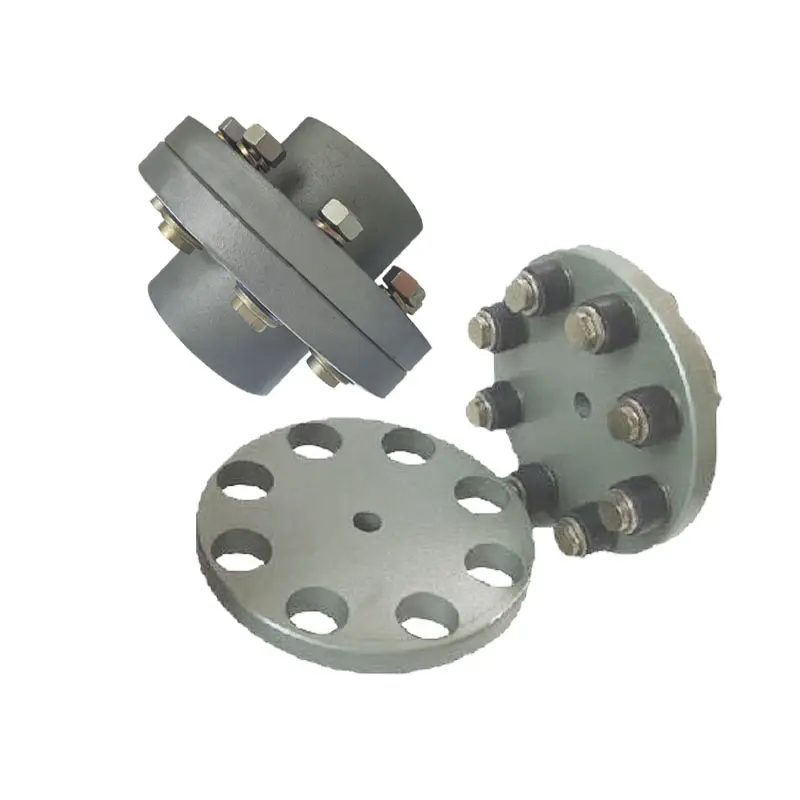
Can Flange Couplings Be Used in Both Horizontal and Vertical Shaft Arrangements?
Yes, flange couplings can be used in both horizontal and vertical shaft arrangements. Flange couplings are versatile mechanical components designed to connect two shafts together while transmitting torque. They are available in various configurations and can accommodate different shaft orientations.
Horizontal Shaft Arrangements: In horizontal shaft arrangements, the two shafts are positioned parallel to the ground or horizontal plane. Flange couplings are commonly used in applications where the driving and driven shafts are aligned horizontally. They provide a secure and rigid connection, ensuring efficient power transmission between the shafts.
Vertical Shaft Arrangements: In vertical shaft arrangements, one shaft is positioned above the other, and they are oriented vertically. Flange couplings can also be used in these applications, but additional considerations may be necessary. Proper alignment and support are crucial to prevent excessive loads on the coupling and ensure smooth operation.
When using flange couplings in vertical shaft arrangements, it is essential to consider factors such as the weight of the connected equipment and any dynamic forces that may act on the coupling due to the vertical orientation. Proper bracing and support should be provided to prevent unnecessary stress on the coupling and its components.
Overall, flange couplings are well-suited for both horizontal and vertical shaft arrangements, making them a versatile choice for various industrial applications.

Maintenance-Free Flange Couplings
Flange couplings can be designed to be maintenance-free, meaning they require minimal or no regular maintenance throughout their operational life. The key features and options that contribute to maintenance-free flange couplings include:
- Sealed and Lubricated: Some flange couplings are sealed and pre-lubricated with high-performance grease during the manufacturing process. This ensures that the coupling remains properly lubricated over an extended period, eliminating the need for routine lubrication.
- Self-Lubricating Materials: Certain flange couplings are constructed from self-lubricating materials, such as polymers or composites, that provide a low-friction interface between the mating surfaces. This reduces wear and eliminates the need for additional lubrication.
- Maintenance-Free Bearings: Flange couplings with integrated maintenance-free bearings further enhance the overall maintenance-free operation. These bearings are designed to withstand the required loads and provide long-lasting performance without the need for regular lubrication.
- Corrosion-Resistant Materials: Flange couplings made from corrosion-resistant materials, such as stainless steel or coated alloys, can resist environmental factors that might lead to corrosion and premature wear, resulting in extended maintenance intervals.
- Robust Design: A well-engineered flange coupling with a robust design can withstand harsh conditions, shock loads, and other stresses, reducing the likelihood of component failure and the need for maintenance.
It is essential to select a flange coupling that is specifically labeled as “maintenance-free” or “self-lubricating” by the manufacturer to ensure that it meets your maintenance objectives. However, it’s important to note that even maintenance-free flange couplings may still require periodic inspection to check for wear, alignment issues, or other potential problems.

What is a flange coupling and how does it work?
A flange coupling is a type of rigid coupling used to connect two shafts together in a mechanical system. It consists of two flanges, one on each shaft, which are bolted together to form a solid and robust connection. Flange couplings are widely used in applications where precise alignment, high torque transmission, and zero backlash are critical.
The key components of a flange coupling include:
- Flanges: The flanges are circular discs with holes around the perimeter for bolting them to the respective shaft ends. The flanges are made from materials such as steel, cast iron, or aluminum, depending on the application requirements.
- Fasteners: High-strength bolts or studs with nuts are used to fasten the flanges together securely. The number and size of the bolts depend on the size and torque capacity of the coupling.
- Gaskets: In some cases, gaskets or spacers are used between the flanges to provide insulation, prevent corrosion, or compensate for any slight misalignments between the shafts.
How a flange coupling works:
- The two shafts that need to be connected are brought together with their respective flanges facing each other.
- The flanges are aligned precisely to ensure that both shafts are in perfect axial alignment. Proper alignment is essential to prevent excessive loads on the bearings and to ensure efficient torque transmission.
- Once the flanges are aligned, high-strength bolts or studs are inserted through the holes in the flanges, and nuts are fastened tightly to hold the flanges together securely.
- The tight connection between the flanges creates a rigid joint between the shafts, allowing torque to be transmitted from one shaft to the other with minimal losses.
- Flange couplings are designed to have zero backlash, meaning there is no play or free movement between the shafts when the direction of rotation changes. This feature ensures precise and immediate power transmission between the connected shafts.
Flange couplings are commonly used in various industrial applications, including heavy machinery, pumps, compressors, and marine propulsion systems. They are preferred when a reliable, high-torque transmission with precise alignment is required. However, they do not offer flexibility to accommodate misalignment, which is a limitation compared to flexible couplings. Therefore, proper alignment during installation is critical to avoid premature wear and failure of the coupling and connected equipment.


editor by CX 2024-03-28
China wholesaler Factory Manufacture Rigid Motor Guide Shaft Flange Coupling flange coupling
Product Description
| Certification | ISO9001:2018;SGS;TS16949 |
| Quality |
CNC machine, CNC Turning, CNC Milling, CNC center machine, auto lathe machine, Wire-cutting Machine CNC punching machines, CNC bending machines CNT stamping machine, CNC/auto lathe machine, Drilling machine, Hydraulic machine, Riveting machine, Tapping machine, welding machine, Film attaching machine, etc. |
| Materials |
Aluminum, Steel, SPCC, SGCC,SECC, SPTE, Stainless steel, Brass, Copper, Bronze, ABS, PC, PO, POM, Nylon, etc. |
| Surface finish |
Anodized, Oxide, Plating, Brushing, Polishing, Blackened, Powder coating, Sandblasting, Laser engraving Zn-plating, Ni-plating, Cr-plating, Tin-plating, copper-plating, the wreath oxygen resin spraying, the heat disposing, hot-dip galvanizing, black oxide coating, painting, powdering, color zinc-plated, blue-black zinc-plated, rust preventive oil, titanium alloy galvanized, silver plating, plastic, electroplating, anodizing, etc |
| Inspection Equipment |
CMM, Projection, Calipers, Micro caliper, Thread Micro caliper, Pin gauge, Caliper gauge, Pass meter, Pass meter, etc. |
| Drawing formation | PDF, CAD/DWG/DXF, IGS/STP etc. |
HangZhou CHINAMFG Industrial Co., Ltd. is a comprehensive factory that specialized in fasteners, CNC parts, stamping parts, machinery parts, and so on. Since the establishment of the company, we have passed ISO9001: 2018, SGS, TS16949.
Our factory covers an area of 5,000 square CHINAMFG and has 58 employees, including 5 R & D personnel and 5 quality inspection personnel.
Major areas of service include automotive, bicycle and motorcycle, industrial automation, agricultural equipment, digital electronics, medical equipment, and so on.
Looking CHINAMFG to your cooperation.
1. We have Specialized QC testers to check the products quality according to customers’ needs.
2. We have IQC to check the dimensions and surface of the incoming material.
3. We have PQC to inspect full-course during the processing.
4. We have FQC to inspect all the plating products from outsides and make the 100% inspection before the shipments.
FAQ:
Q1: Why choose ZheJiang n?
To provide our customers with first-class services in the supply of quality screws minimizing costs.
Q2: How is quality ensured?
All our processes strictly adhere to ISO9001:2018 procedures. We have strict quality control from producing to delivery. Our company had strong technology support, 80% of our colleagues are master or bachelor’s degree. We have cultivated a group of managers who are familiar with product quality , good at modern concept of management.
Q3: Can You Strictly Follow The Tolerance on The Drawing And Meet The High Precision?
Yes, we can, we can provide high precision parts and make the parts as your drawing.
Q4: How should I order and make payment?
By T/T, for samples 100% with the order; for production, 30% paid for deposit by T/T before production arrangement, the balance to be paid before shipment. negotiation accepted.
Q5: What’s your Delivery Time?
Standard parts: 7-20days
Non-standard parts: 15-25days
We will make the delivery as soon as possible with the guarantee quality
Q6:How to Custom-made (OEM/ODM)?
If you have a new product drawing or a sample, please send to us, and we can custom-made the as your required. We will also provide our professional advices of the products to make the design to be more realized & maximize the performance.
Q7:Which mode of transport would be better?
In general, the product are heavy, we advice to make delivery by sea, Also we respect your views of other transportation as well.
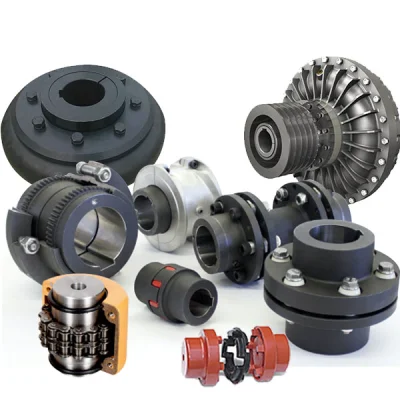
Impact of Flange Coupling on the Overall Reliability of Connected Equipment
A flange coupling plays a crucial role in ensuring the overall reliability and performance of connected equipment in a mechanical system. Its impact can be summarized as follows:
- 1. Power Transmission Efficiency: Flange couplings provide a secure and rigid connection between shafts, enabling efficient power transmission from one component to another. By minimizing energy losses through slippage or vibration, flange couplings help maintain the overall efficiency of the system.
- 2. Reducing Wear and Tear: Flange couplings accommodate misalignment and slight axial movement, reducing stress on connected equipment. By absorbing shocks and vibrations, they protect the components from excessive wear and fatigue, increasing their lifespan.
- 3. Controlling Vibration and Noise: A properly selected and installed flange coupling helps dampen vibrations and reduces noise levels in the system. This is particularly important in precision machinery, where vibrations can affect the accuracy and performance of the equipment.
- 4. Handling Misalignment: Flange couplings can compensate for angular, parallel, and axial misalignment between shafts. This capability ensures smooth operation and prevents excessive forces that could lead to premature failure of equipment components.
- 5. Improving System Flexibility: Flange couplings offer flexibility in design and installation. They allow for quick and easy disconnection and reconnection of equipment for maintenance or repairs, minimizing downtime and increasing the system’s overall availability.
- 6. Protection Against Overloads: In high-torque applications, flange couplings provide a safeguard against overloads by slipping or disengaging when the torque exceeds the coupling’s capacity. This helps prevent damage to the equipment and ensures the safety of the system and operators.
- 7. Corrosion Resistance: Depending on the material selected, flange couplings can offer excellent corrosion resistance, making them suitable for use in harsh environments or corrosive conditions. This protects the connected equipment from premature deterioration.
- 8. Maintenance and Downtime Reduction: The reliability of flange couplings leads to reduced maintenance needs and less frequent downtime. A well-maintained coupling can significantly extend the life of connected equipment and reduce the frequency of replacements or repairs.
- 9. Enhancing System Safety: Flange couplings provide a secure connection that ensures the safe operation of rotating machinery. They minimize the risk of unexpected equipment failure or disconnection, promoting the safety of operators and surrounding personnel.
- 10. Adaptability to Different Industries: Flange couplings are widely used across various industries, from manufacturing and power generation to mining and aerospace. Their versatility and reliability make them suitable for a wide range of applications, contributing to the overall success and efficiency of these industries.
In conclusion, the proper selection and use of flange couplings significantly impact the overall reliability and performance of connected equipment. Their ability to transmit power efficiently, handle misalignment, and protect against wear and overloads ensures smooth and safe operation, reducing maintenance costs, and increasing the lifespan of machinery.
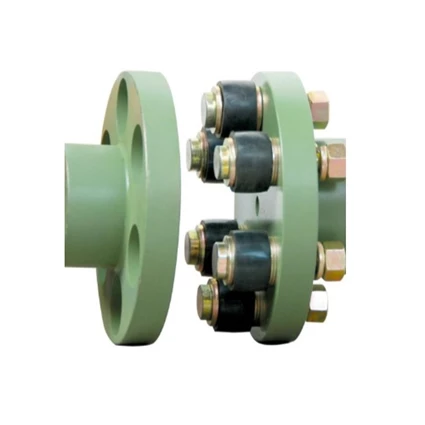
Key Features to Consider When Purchasing a Flange Coupling
When purchasing a flange coupling, it is essential to consider several key features to ensure it meets the specific requirements of your application. Here are the main factors to look for:
- Type of Flange Coupling: There are various types of flange couplings, such as rigid, flexible, and fluid couplings. Choose the type that best suits your application’s needs, considering factors like misalignment compensation, torsional stiffness, and vibration damping.
- Size and Dimensions: Select the flange coupling with the appropriate size and dimensions to fit your shafts and equipment. Consider shaft diameter, coupling length, and any space limitations.
- Material: Flange couplings can be made from various materials, including steel, aluminum, stainless steel, and elastomers. Choose a material that offers the required strength, corrosion resistance, and durability for your operating conditions.
- Torsional Rating: Check the torsional rating of the flange coupling to ensure it can handle the torque requirements of your application without failure or deformation.
- Misalignment Compensation: If your application experiences shaft misalignment, opt for a flexible flange coupling that can accommodate angular, parallel, and axial misalignment to prevent stress on connected equipment.
- Backlash: For precision applications, select a flange coupling with minimal or no backlash to maintain accurate positioning and reduce the effects of mechanical play.
- Operating Speed: Consider the operating speed range of the flange coupling to ensure it can handle the rotational speed requirements without issues like resonance or fatigue.
- Environmental Compatibility: Evaluate the flange coupling’s ability to withstand the environmental conditions of your application, such as temperature, humidity, and exposure to chemicals or corrosive substances.
- Installation and Maintenance: Choose a flange coupling that is easy to install and maintain, as proper installation and periodic maintenance are crucial for optimal performance and longevity.
- Cost and Value: Compare the cost of the flange coupling with its features and performance to ensure you are getting the best value for your investment.
By carefully considering these key features, you can select a flange coupling that not only meets the demands of your application but also ensures reliable and efficient power transmission while minimizing downtime and maintenance costs.
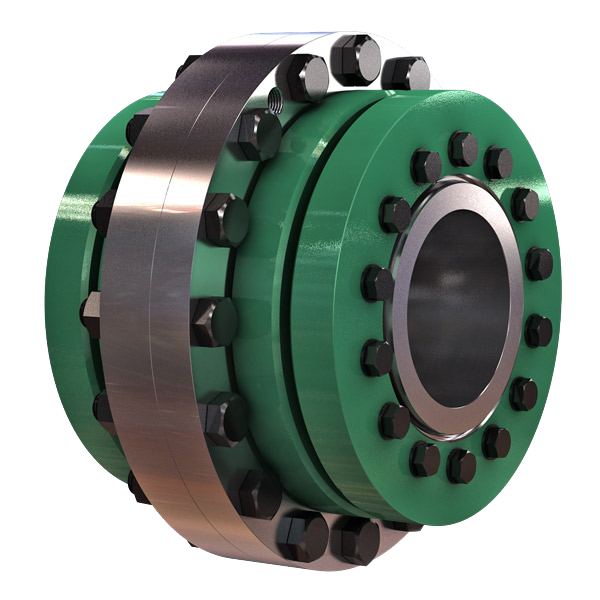
Selecting the Appropriate Flange Coupling for a Specific Application
Choosing the right flange coupling for a particular application involves considering several key factors to ensure optimal performance and reliability. Here’s a step-by-step guide to the selection process:
- 1. Identify Application Requirements: Understand the specific requirements of the application, including torque, speed, and operating conditions. Determine if the coupling will be exposed to harsh environments, extreme temperatures, or corrosive substances.
- 2. Calculate Torque and Power: Calculate the torque and power requirements for the shaft connection. This involves evaluating the motor or engine’s output torque and ensuring the selected coupling can handle the transmitted power.
- 3. Consider Misalignment: Assess the level of misalignment that may occur between the shafts during operation. For applications with significant misalignment, consider using flexible flange couplings that can accommodate angular, parallel, and axial misalignment.
- 4. Evaluate Speed and RPM: Determine the rotational speed (RPM) at which the coupling will operate. High-speed applications may require a balanced or precision-designed flange coupling to minimize vibrations and prevent damage to connected equipment.
- 5. Check Space Constraints: Consider the available space for installing the coupling. Some flange coupling designs may require more space than others, so ensure that the selected coupling fits within the available area.
- 6. Review Environmental Conditions: Evaluate the environmental conditions in which the coupling will operate. If the application involves exposure to dust, dirt, or moisture, consider using a protected or sealed flange coupling to prevent contamination.
- 7. Determine Flexibility: Decide on the level of flexibility required. Flexible flange couplings are suitable for applications where there may be shaft misalignment or torsional vibration. Rigid flange couplings, on the other hand, are ideal for precision applications with minimal misalignment.
- 8. Check Material Compatibility: Ensure that the material of the flange coupling is compatible with the shafts and the operating environment. Consider factors such as corrosion resistance, temperature tolerance, and mechanical properties.
- 9. Seek Expert Advice: When in doubt, consult with coupling manufacturers or engineering experts to help you select the most suitable flange coupling for your specific application.
By carefully considering these factors, you can select the appropriate flange coupling that meets the performance and operational requirements of your application, leading to a reliable and efficient shaft connection.


editor by CX 2023-12-13